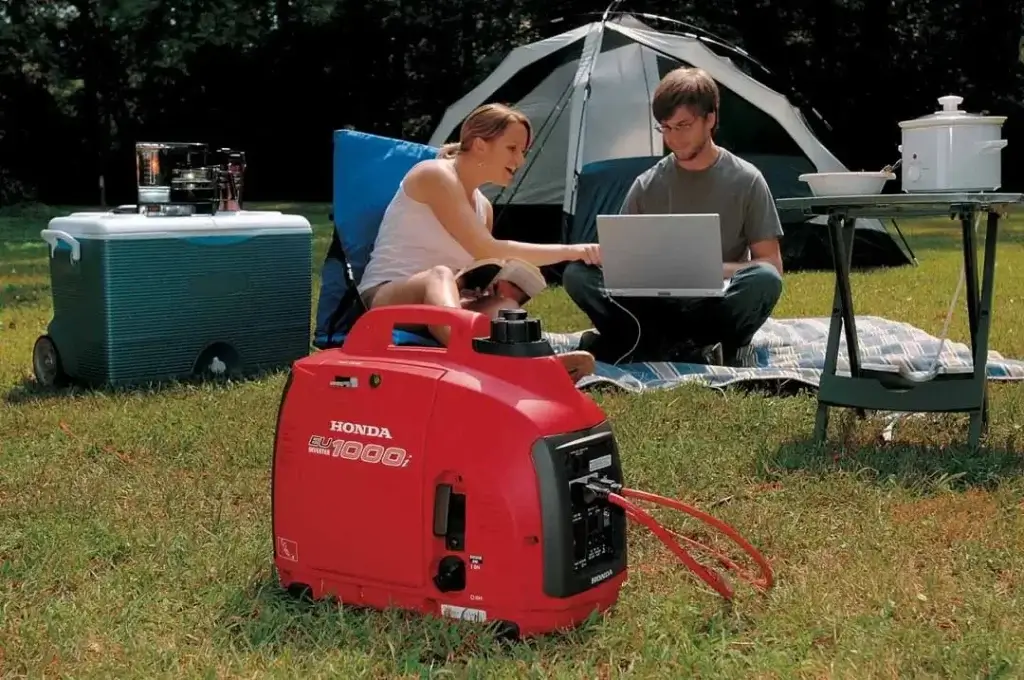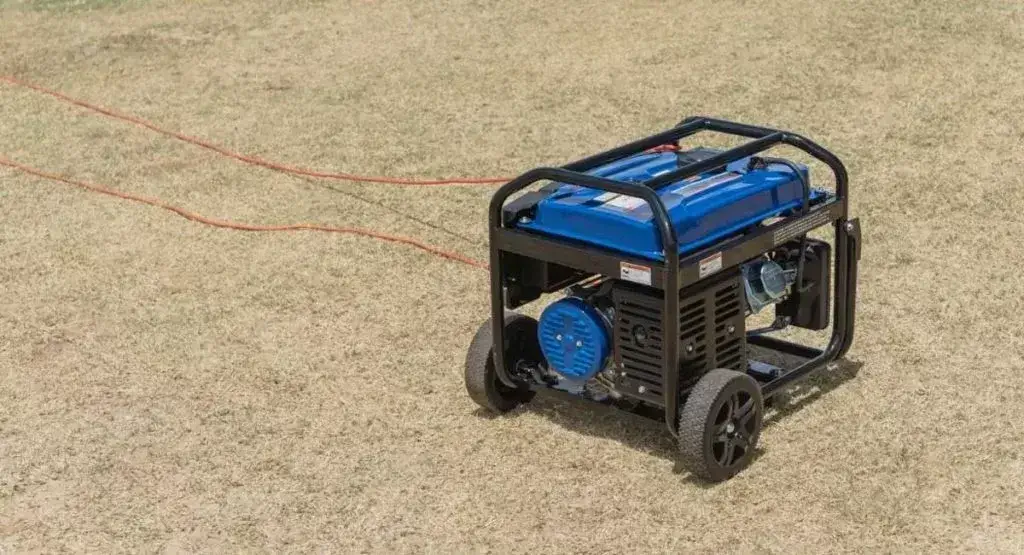Do I need to ground my generator when camping? Grounding a generator when camping is a necessary safety precaution. Generators produce dangerous voltage and current that can be lethal if they contact the wrong places.
If you don’t ground your generator, you are at risk of injury or death. This blog post will teach you how to properly ground your generator before taking it out on the road for camping.
What is grounding?
Grounding is when you connect an electrical device to the ground. This helps protect you from getting shocked if something goes wrong with the device. It also helps keep the energy going in the right direction.
How to Ground a Generator When You Are Camping

When camping, you will need to ground your generator to ensure safety. There are a few different ways to do this, and it depends on the type of generator you have. If you have an inverter generator, you will need to use an adapter to ground it.
You can purchase these adapters at any hardware store. If you have a standard generator, you can use a grounding rod to ground it. This is the most common way to ground a generator when camping.
First, find an appropriate place to set it up to ground your generator. Make sure that the area is flat and free of debris. Next, connect the green wire from the generator to the grounding rod.
The grounding rod should be at least six feet long, and it should be inserted into the ground as far as possible. If you can’t find a grounding rod, you can use metal stakes to create an “earth ground.”
Make sure that the metal stakes contact the earth, and connect them to the generator’s green wire. Once you have connected the generator to the grounding rod or earth ground, it is safe to use.
WARNING: Do not operate a generator indoors. This can be extremely dangerous and can result in death or serious injury.
Make sure that your generator is set up in an open area, away from buildings and other structures. Also, keep children and pets away from the generator at all times.
-Check the weather. Make sure it is not going to rain or storm in the near future
-Find a spot for your generator. You will need at least six feet of clearance on all sides
-Remove the spark plug cap and check that the engine is off
-Locate the grounding screw (it will be a green wire) and loosen it with a Phillips head screwdriver
-Take the grounding clamp and attach it to the generator’s frame. The other end of the clamp should be attached to a metal stake that is hammered into the ground
-Tighten the grounding screw
-Replace the spark plug cap and start up your generator
-Check to see if the grounding screw has loosened. If it has, tightens it again
Also read: How To Get Rid Of Flies While Camping (16 Effective Methods)
Do I Need to Ground My Generator When Camping?
There is no definitive answer to this question. It depends on various factors, such as the type of generator you are using and where you are camping. In some cases, it is not necessary to ground your generator. However, in other cases, it is essential for safety reasons.
The best way to determine whether or not you need to ground your generator is to check the weather. First, make sure it will not rain or storm in the near future.
Once you have determined that, find a spot for your generator. You will need at least six feet of clearance on all sides.
Once you have found a spot, remove the spark plug cap and check that the engine is off. Next, locate the grounding screw (a green wire) and loosen it with a Phillips head screwdriver.
Take the grounding clamp and attach it to the generator’s frame. The other end of the clamp should be attached to a metal stake hammered into the ground.
Tighten the grounding screw and replace the spark plug cap. Startup your generator and check to see if the grounding screw has loosened. If it has, tightens it again.
Enjoy your generator. Just make sure you keep an eye on the weather forecast so you can take it down before a storm hits.
Is It Necessary by Law to Use a Ground Generator?

No, generator grounding is not required by law. However, it is always good to ground your generator to help prevent electrical shock. This can be done with a simple grounding rod.
Drive the grounding rod into the earth and attach the ground wire to your generator. Make sure that the grounding rod is correctly connected to the earth’s ground.
Most homes have a grounding rod installed, but if you don’t have one, you can contact an electrician to install one for you. Always follow the manufacturer’s instructions when grounding your generator.
Some people choose not to ground their generators because they believe it will decrease the generator’s life. However, there is no evidence to support this claim. Grounding your generator can help protect it from electrical damage.
If you are not sure whether or not to ground your generator, consult with an electrician to see what is best for your situation. Grounding your generator is a simple way to help keep yourself safe while camping, and there is no reason not to do it.
What Do I Need to Do If I Am Using a Camping Trailer?
If you are using a camping trailer, ground the generator to the same grounding rod you would use for a regular house.
Be sure to check with your camping trailer’s manufacturer if you are unsure how to do this properly. Most trailers won’t require the use of an additional grounding rod.
How Does a Generator Work?
Camping generators use gasoline and then convert that energy into electricity. This is done using a rotor, which rotates at high speeds and creates the electrical energy you need to run your appliance or electronics while camping.
Can I Use My Generator Without Grounding It?
No. Using your generator without grounding is very dangerous. This can result in electrical shock or electrocution, which can be deadly. Always use a grounding rod when using your generator to protect yourself.
What Should I Look for If My Generator Requires Grounding?
Your generator will be grounded if it has a three-prong outlet, and you plan to use the extension cord that accompanies the generator. Make sure your generator is grounded correctly before using it as an appliance, such as a refrigerator or air conditioner, which could become damaged.
What If You Don’t Ground a Generator?
One of the first mistakes people make when camping with their generator is not grounding it. This can result in serious consequences that you don’t want to deal with.
Generators that are not grounded can pose various risks. They include, but may not be limited to, the risk of electric shock in the event of an electrical short with another piece of metal equipment, the risk of an explosion if combustible gas escapes and ignites, and the risk of electrical fires.
Conclusion
When camping, it is important to use your generator safely. One of the best ways to ensure this happens is by grounding it properly and using a three-prong outlet.
Now you know how to ground your generator and why you should do it. Just make sure you follow the manufacturer’s instructions while using your generator, and always remember to stay safe.
